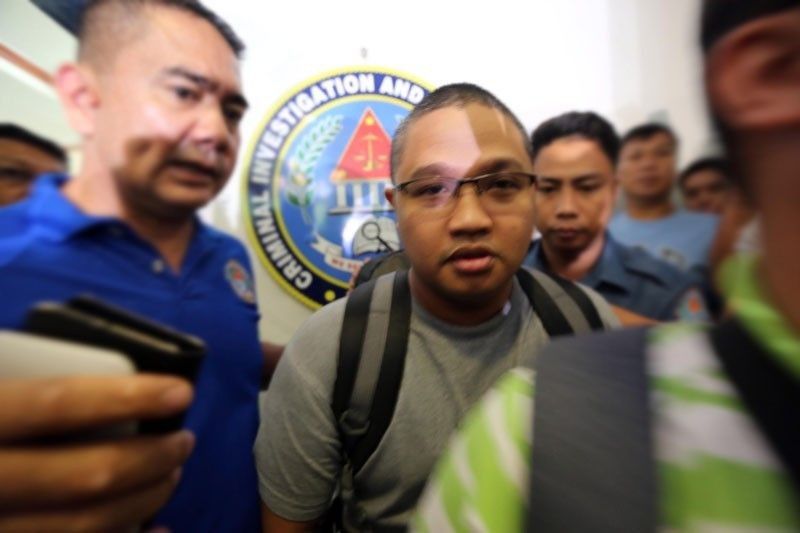Prosecution yet to decide on Advincula as state witness in conspiracy to commit sedition case

MANILA, Philippines — State prosecutors are unsure on whether they will use Peter Joemel Advincula, who claimed to be “Bikoy,” as state witness in the conspiracy to commit sedition case they filed against former Sen. Antonio Trillanes IV.
Advincula is one of the 11 charged for conspiracy to create hatred against President Rodrigo Duterte and his family with the end goal of destabilizing the government.
His testimony was central to the complaint filed by the Criminal Investigation and Detection Group.
Asked on whether Advincula was charged only to be utilized as a state witness later on, Senior Assistant State Prosecutor Olivia Laroza-Torrevillas said: “We’ll think about it.”
READ: The shifting narratives on the 'Bikoy' videos, according to Peter Advincula
In a press conference streamed live on Thursday, Torrevillas said that Advincula may be the witness of the CIDG in their complaint but “the prosecution is not precluded from utilizing other witnesses, other evidence when [we] already reach the court.”
Advincula, a convicted swindler, claimed to be “Bikoy,” the hooded figure in the “Ang Totoong Narcolist” videos in two vastly different circumstances.
Senate President Vicente Sotto III previously said Advincula accused then-President Benigno Aquino III, Interior Secretary Mar Roxas and Justice Secretary Leila de Lima of having links to a so-called "Quadrangle" drug syndicate.
Trillanes, also charged in the case, said he met Advincula in 2018 but the latter did not pass the vetting process as he found the allegations as not credible.
READ: Trillanes: 'Bikoy' reached out in 2018; I didn't believe him
Other evidence aside from ‘Bikoy’ videos considered
Torrevillas also said that when they resolved the complaint, they considered evidence outside the “Ang Totoong Narcolist” videos.
CIDG wanted the respondents, which included Vice President Leni Robredo and other members of the opposition and the clergy, charged with sedition, inciting to sedition, cyber libel, libel estafa and obstruction of justice. But the panel charged only 11 out of the 35 respondents with a lighter offense of conspiracy to commit sedition.
Torrevillas said that the panel considered “the series of acts which clearly manifested that there is indeed... a grand conspiracy.”
These are the production of “Bikoy” videos, uploading, press conferences of Advincula, and former cop Eduardo Acierto—also charged in the case—linking Duterte and his family to illegal drug syndicates.
“Do not limit yourself to just the Bikoy videos. There were other acts that led us to say there was conspiracy to commit sedition,” Torrevillas explained.
No overt acts of those charged needed
In the resolution made public Thursday, state prosecutors said: “Clearly, the law punishes mere conspiracy or the agreement itself to raise commotion and disturbances; violate or engenders the public peace of the State.”
“Thus, respondents who merely agreed and decided among themselves to rise publicly and tumultuously in order to attain by force, intimidation, or by any other means outside of the legal methods the objects of sedition defined,” they added
The resolution did not, however, specify which acts of the respondent led to their indictment of conspiracy to commit sedition.
Torrevillas said they need not specify the overt acts of those charged because the crime they are alleging is conspiracy to commit sedition.
“Because overt acts they are not needed in order to hold you answerable for conspiracy [to commit sedition],” she explained.
The conspiracy to commit sedition charges were filed before the Quezon City Metropolitan Trial Court on Monday, February 10. — Kristine Joy Patag
- Latest
- Trending































